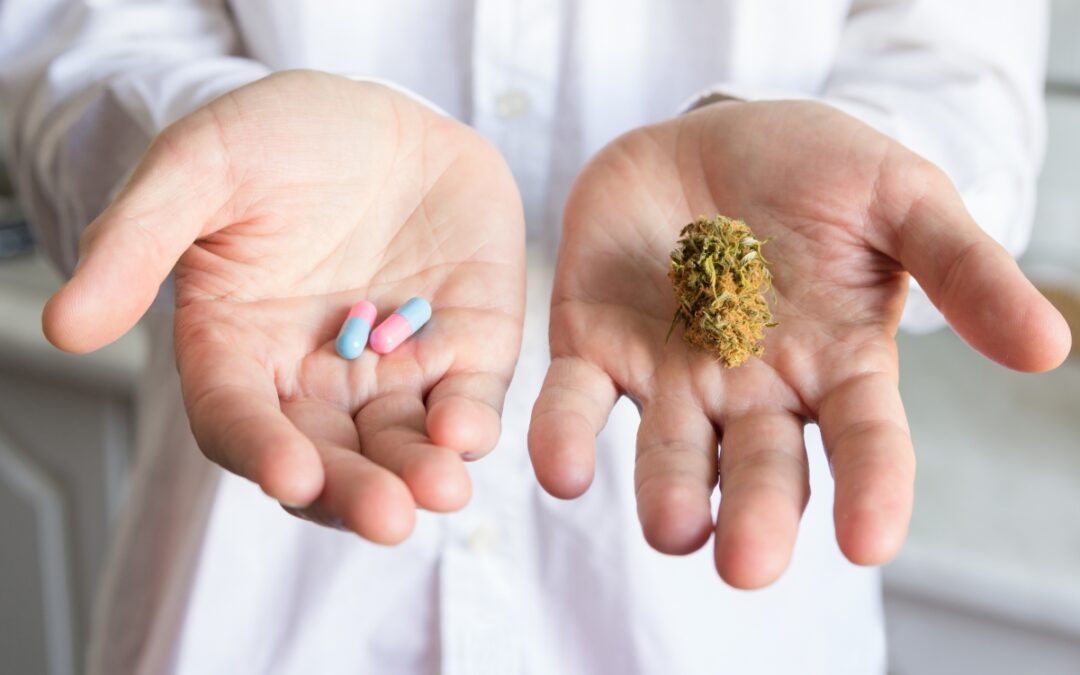After being considered an illegal substance for many years, the debate around marijuana is now growing on a cultural and legal basis. Scientists have revealed much about the effects of marijuana’s compounds on the body during the past 20 years and have proven marijuana’s medical potential. However, there’s still much more to be discovered.
So, it seems reasonable for marijuana advocates to promote medicinal marijuana and fight for its legalization throughout the country.
So, can marijuana be considered a medicine?
Medical Marijuana Legalization
The use of medical cannabis is becoming more widespread now that it’s legal in 39 states and the District of Columbia. Moreover, the recreational use of cannabis has been approved in DC and 21 states.
The number of initiatives to legalize marijuana as medicine in the US has increased dramatically in recent years. Though some states have put these new laws into practice, about one-fourth of states, have passed laws or ballot initiatives allowing marijuana use within that state.
According to federal law, marijuana is still classified as a Schedule I drug, meaning it is not currently used for any approved medical purposes in the country. However, FDA has approved Epidiolex for the treatment of seizures as well as Marinol and Syndros for the treatment of anorexia.
How Medical Cannabis Works
The endocannabinoid system (ECS) is a complex active system in our bodies and plays a significant role in regulating sleep, appetite, mood, and memory. It involves receptors, endocannabinoids, and enzymes.
The cannabis plant contains more than 100 cannabinoids, each producing different effects depending on the receptors they bind to in the body and brain. Each cannabinoid produces a different effect on the body. Delta-9-tetrahydrocannabinol (THC) and cannabidiol (CBD) are the main substances in medical cannabis.
Similar to endocannabinoids, once THC enters the body, it binds to receptors and interacts with the ECS. Its ability to connect to both CB1 and CB2 receptors contributes to its potency.
THC has anti-inflammatory, anti-nausea, anti-anxiety, and pain-relieving properties. Because of this, it can have various effects on your body and mind, some more desirable than others. Similar health advantages may be present in CBD, although without the euphoric high that THC produces.
Medical Benefits of Marijuana
Cannabinoids can actively reduce pain by changing the brain’s neural pathways. This is quite beneficial for treating chronic pain diseases like migraine, fibromyalgia, endometriosis, and arthritis.
Additionally, it can reduce negative side effects of cancer treatment, like appetite loss.
Cannabis’ effects on the central nervous system may be effective in treating chronic pain, insomnia, nausea, muscle spasms, multiple sclerosis spasticities, arthritic inflammation, and Crohn’s disease.
In the same vein, marijuana can be an excellent muscle relaxant, and many swear by its capacity to diminish Parkinson’s disease-related tremors. Additionally, some people have used marijuana instead of prescription medications, and research has shown that marijuana helps decrease opioid use in chronic pain.
Advocating for Medical Marijuana
To guarantee that patients can receive medical cannabis legally, safely, and reliably, state medical cannabis legislation is enforces itself. What we already know is that cannabis is a safe and effective treatment for people with a wide range of medical conditions, according to scientific evidence. People with certain diseases shouldn’t be coerced into using pharmaceutical drugs that are much more addictive and hazardous.
According to recent data, the majority of Americans are in favor of legalizing marijuana for either medical or recreational use. As a result, marijuana is now legal in many states for either medical or recreational purposes.
Unfortunately, the divisive debate over marijuana’s legal status has obscured much of what researchers have discovered about the drug’s potential medical use. Even at the level of state vs. federal law, there are disputes over the legality of medical marijuana use.
Cannabis Avcotaion Continued
However, we should remember that medical marijuana is not a recreational drug. People who only use marijuana as medicine do so to alleviate particular symptoms of AIDS, cancer, multiple sclerosis, and other conditions.
Advocates for medical marijuana claim that patients typically experience relief from their ailments with lower doses of the drug than they would take for recreational purposes and that they don’t feel high when consuming it.
Cannabis effects vary depending on the delivery method, and that’s why medical marijuana in the form of an extract or tincture is more efficient in symptom relief. Finding an alternative to smoking that quickly delivers cannabinoids to the body could help to mitigate some of marijuana’s harshest adverse effects.
Keep in mind that several effective medications have side effects. Despite marijuana’s negative effects, it still has current applications to make effective treatments. Scientists claim that it may be feasible to distinguish between good compounds and harmful substances in the cannabis plant as they learn more about the plant’s chemicals and their impact on the human body.

